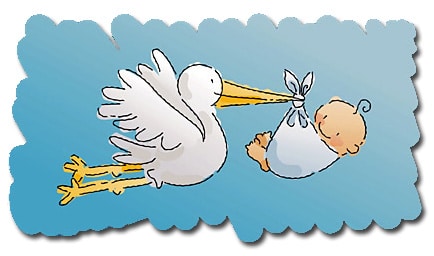March 23, 2014

Breast milk is one the greatest gifts that a mom can give her baby but it's not always the easiest job in the world! It was challenging for me 5 different times but I did the best I could and my people turned out just fine. I've said it before and I'll say it again, I sure wish I had my pure essentials oils when my kids were little a bazillion years ago. Yep, essential oils can be game changers in the world of lactation too. Want to lay down a foundation of good health for your little bundle of joy? Embrace breast feeding when at all possible, by doing so you can be hopeful of these benefits:

Tip #1: increase milk supply
FENNEL - can play an important role for lactating moms. It can increase milk by boosting production of the hormone estrogen. This benefits baby and mom. Here's a bonus! This milk also inherits some of the carminative and digestive properties of fennel oil and protects the baby from flatulence, indigestion and gas, which are very common in infants. Some moms report that their milk seemed to have more fatty consistency after using Fennel for increased milk supply. We do have personal experience with this happy solution in our family, my daughters have experienced "abundance" with Fennel! Don't forget to drink lots of water! *Apply topically to both breasts, avoiding nipple - 2x daily. Discontinue use after one week, resume in two weeks as needed. *It's important to note that you should use essential oils in moderation. Increasing your milk supply too much can create engorgement, plugged ducts or mastitis. Most women have success with just one or two applications of an essential oil. Remember, everything you take into your body will find it's way into breast milk.

Mastitis is an infection of the breast that most likely came from baby and entered thru a cracked nipple. This can be extremely painful but it's important to keep nursing - antibodies will transfer to baby thru breast milk. Treat the infection with pure essential oils right away and be consistent. MELALEUCA and a Lavender Thieves Immunity Blend - Get an antibiotic protocol going pronto! For convenience add 1 part Melaleuca, Lavender Thieves and fractionated coconut oil to a roller bottle. Every 2 to 3 hours roll under your arm at the site of lymph nodes and on breast, avoiding nipple. Mastitis rarely affects both breasts, apply oil blend on infected breast but under BOTH armpits too.
I would suggest this protocol be used along with ONE of the Oregano options to follow: OREGANO - Two different protocols with Oregano, an oral protocol (only pure Oregano is to be used). Oregano is an excellent anti-microbial but it's also HOT so be very diligent NOT to get the oil on your fingers then touch baby. Always diffuse the heat by washing your hands then moisturizing with an carrier oil like CW Naked Salve. If you're comfortable with it, take a capsule of 4 drops Oregano 3x daily. Always have food in your stomach when taking Oregano internally and know that baby will probably taste it in the milk so watch for signs of fussiness. Another option: 1 part Oregano to 5 parts carrier oil massaged on nipple before and after nursing. Baby will get the benefits and, you'll also creating an anti-microbial environment for your breast pads or nursing cups. This is bonus, you don't want to be passing this infection back and forth between yourself and your bundle of joy! NOTE: I tried this on myself to make sure dilution was enough to take away the heat, I'm happy to report it was! Again, make sure you wash and moisturize your hands afterwards, very important!
I hope this information will be helpful for the breast feeding champions. Your work, pain and sacrifice of time and effort is VALUABLE! Take care of yourself, get plenty of rest, stay calm, stay hydrated and enjoy this special time with baby, it's fleeting! As always, one of my go to resources for anything pregnancy related is Stephanie Fritz's book: Essential Oils for Pregnancy, Birth and Babies it's an invaluable resource for all new moms living the EO Life :)
Save 10% on all CW Essential Oils, Salves, Serums and more with coupon code: campwander in the CW Shop. FREE shipping in the USA - International orders welcome.

